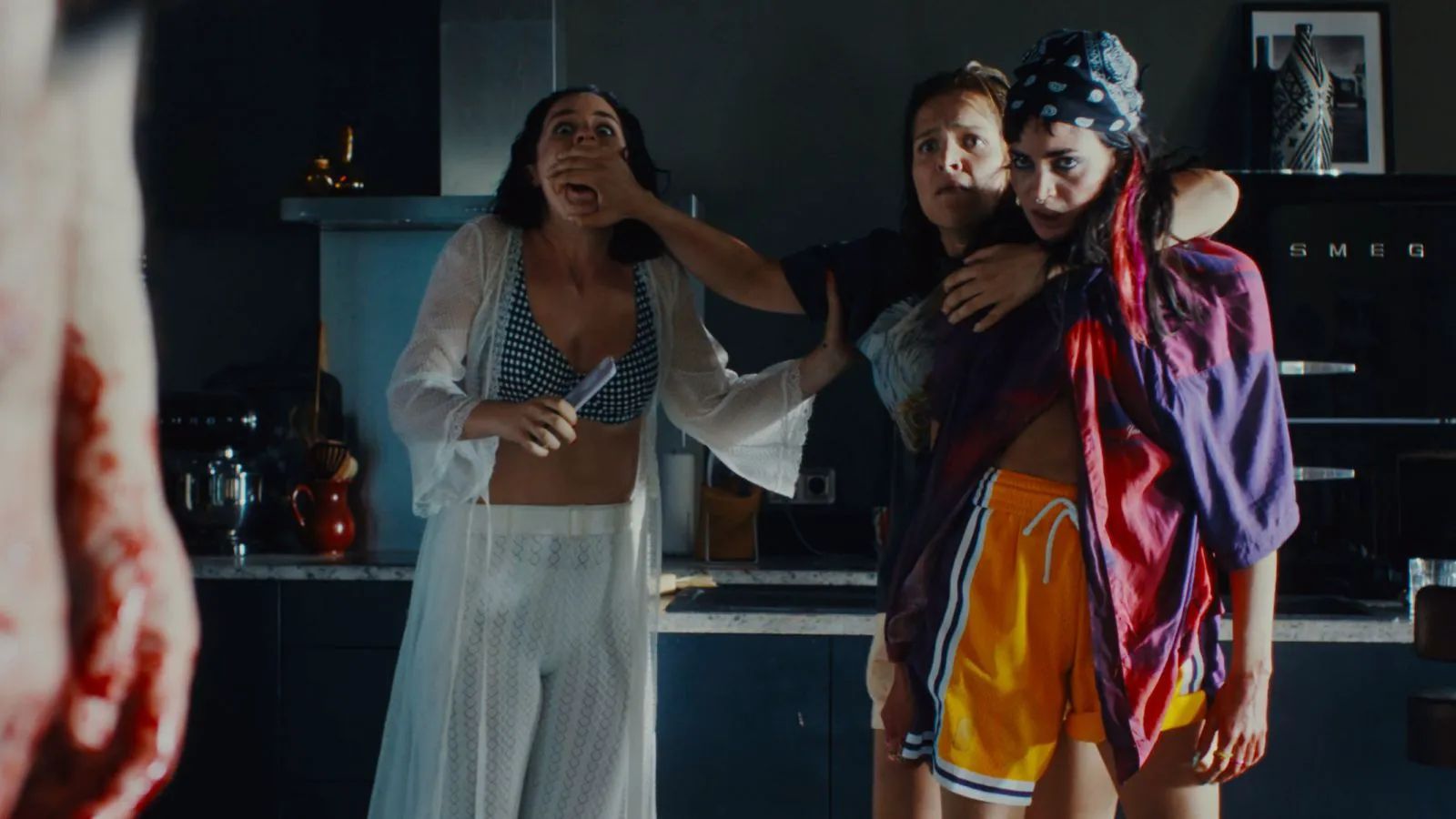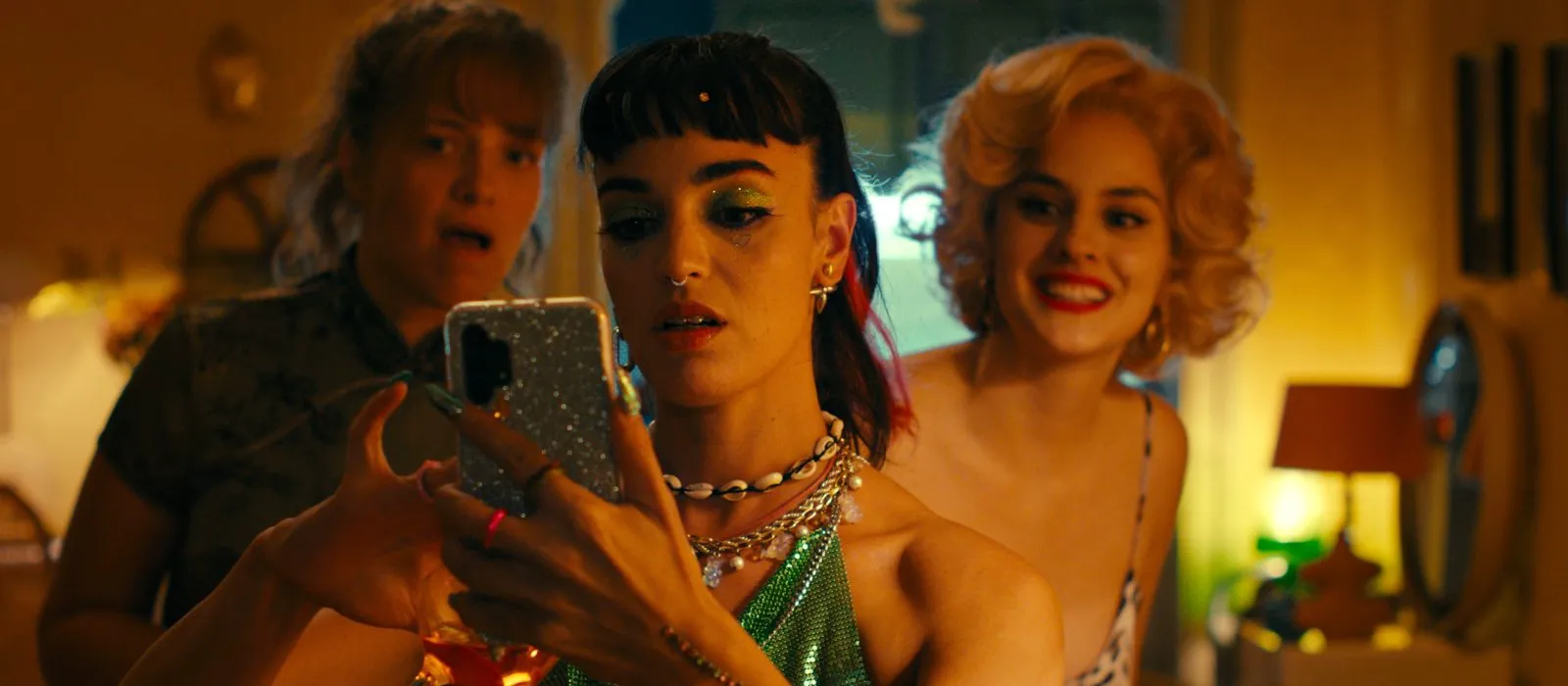A Midnight Screening That Bites Back: Noémie Merlant’s “The Balconettes”
The “Midnight Screenings” section of the Cannes Film Festival is a unique beast. As darkness descends on the Croisette and the esteemed guests retreat to exclusive parties, tireless cinephiles flock to the Lumière Theatre, ready for genre-bending cinematic experiences. Initially, the premiere of Noémie Merlant’s new film in this slot seemed like an odd choice, perhaps a scheduling quirk. Merlant is best known for dramatic roles, often in period pieces (“Portrait of a Lady on Fire,” “Curiosa”), and her directorial debut, “Mi iubita mon amour,” leaned more towards indie rom-com than genre experimentation.

Noémie Merlant as Élise in “The Balconettes”
“The Balconettes” throws you into the deep end with a vibrant and visceral scene of a woman taking violent revenge on her abusive husband. The camera then glides across the balconies of a sweltering Marseille apartment building, landing on the lively neighbors: Ruby (Souheila Yacoub), a webcam performer, and Nicole (Sanda Codreanu), an aspiring writer. Élise (played by Noémie Merlant herself), an actress, is characteristically late, rushing to her friends from the set of a Marilyn Monroe film. As the three women gather for an evening of wine-fueled chatter, a curious encounter with an attractive neighbor takes a dark turn, culminating in a non-consensual sexual encounter with devastating consequences.

Noémie Merlant as Élise in “The Balconettes”
A Genre-Bending Exploration of Trauma and Revenge
The plot dives headfirst into a whirlwind of vengeful fervor, intimate girl talk, and profound reflections on the body and its vulnerabilities. “The Balconettes” feels like a collective therapy session, navigating the stages of denial and acceptance in the wake of trauma. Merlant masterfully balances outrageous genre tropes – dismembered limbs, graphic violence – with heart-wrenching sisterhood and a fierce determination to support a friend who has experienced sexual assault.
Unapologetically Unhinged
In its blatant attempts to fuse the incompatible, “The Balconettes” often feels like a film on the verge of collapse. It’s undeniably unrestrained, insensitive, even brazen, where everything and everyone exists without moderation, and artistic choices feel more like suggestions. Yet, this deliberate loss of control is perfectly aligned with a narrative that gradually incorporates paranormal elements and a touch of the mystical.
“The Balconettes” is sure to provoke strong reactions, either deeply resonating with viewers or pushing them to their limits. Its unapologetic pursuit of retribution for all the times women have been forced into submission is a powerful statement. It’s difficult to convey in words how Merlant manages to blend the form of a defiant manifesto with genuine empathy and disarming compassion for those who have been victimized. The director seeks to dismantle the very notion of victimhood and vulnerability.

Souheila Yacoub as Ruby in “The Balconettes”
Embracing Body Positivity and Female Solidarity
The film fearlessly tackles physiological issues, not only in the context of sexual assault but also in exploring the broader spectrum of the female body. Merlant champions body positivity with remarkable candor, emphatically declaring, “My body, my business.” The film features a refreshingly honest and humorous gynecologist visit, and Merlant doesn’t shy away from jokes about flatulence.
As is often the case when pent-up emotions are unleashed on screen, not every gag lands, and some narrative threads feel disjointed. However, the undeniable charm of the actresses compensates for the script’s shortcomings. Despite the film’s rough edges, the moments of sisterhood and solidarity are genuinely moving, and the fiery glint in the eyes of Merlant and Souheila Yacoub ignites a contagious energy, urging viewers to speak out.